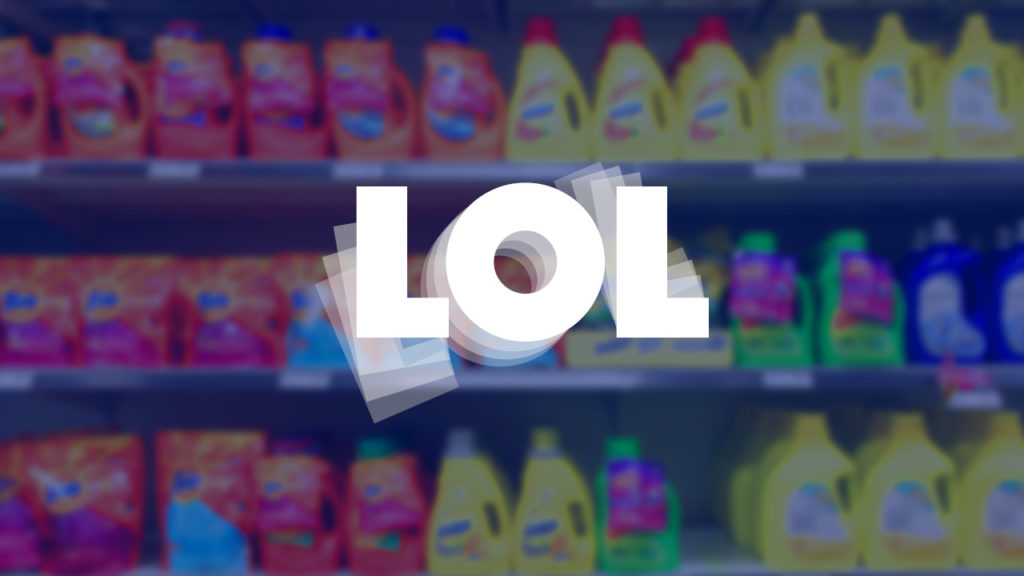Procter & Gamble (P&G) is trying to adopt—via trademark—a number of social media abbreviations to be used in cleaning and air freshening products.
As reported by Bloomberg, the manufacturing giant has filed several applications with the US Patent and Trademark Office for phrases like “LOL,” “WTF,” “NBD” and “FML.” According to the applications, these abbreviations would be used to label non-medicated liquid soap, dishwashing detergents, hard surface cleaners and air fresheners.
The move could be a sign that P&G plans to launch a millennial-focused brand using these phrases, as applications say they would be considered a standard character mark. This term refers to words, letters, numbers or a combination thereof, but does not lay claim to specific fonts, size, color or design element.
P&G’s applications do not, however, indicate whether these trademarked phrases would stand for their original meanings, which are “laugh out loud,” “what the fuck,” “no big deal” and “fuck my life,” respectively. For purposes of branding, “WTF” could stand for “wash the floor,” or “FML” may translate to “for maximum lather,” considering P&G owns Pantene hair products.
Creating a new label for common household items may be P&G’s plan to woo the generation blamed for killing industries en masse. P&G board member Nelson Peltz acknowledged that Millennials want a more intimate relationship with their products, saying that younger consumers do not want “one-size fits all” brands.
“Millennials want these little brands, these local brands that they have an emotional attachment to,” Peltz said.
Young consumers aren’t buying fabric softeners the way their parents did, forcing the company to rethink its marketing—relabeling bottles “fabric conditioner,” for example. P&G’s president of NA Fabric Care Shailesh Jejurikar told The Wall Street Journal that millennials don’t know what the product is for.
Adopting “the lingo” of young consumers can be a fun way to engage, but brands run the risk of appearing disingenuous. Several brands have employed marketing campaigns using popular memes or emoji, some with great success.
However, marketerss should make sure any use of popular phrases is in line with its brand message. A 2016 study by Sprout Social asked social media users what annoys them about brands online. For 29.9 percent of respondents, using slang or jargon that doesn’t fit the brand was listed as a major reason for an unfollow.

